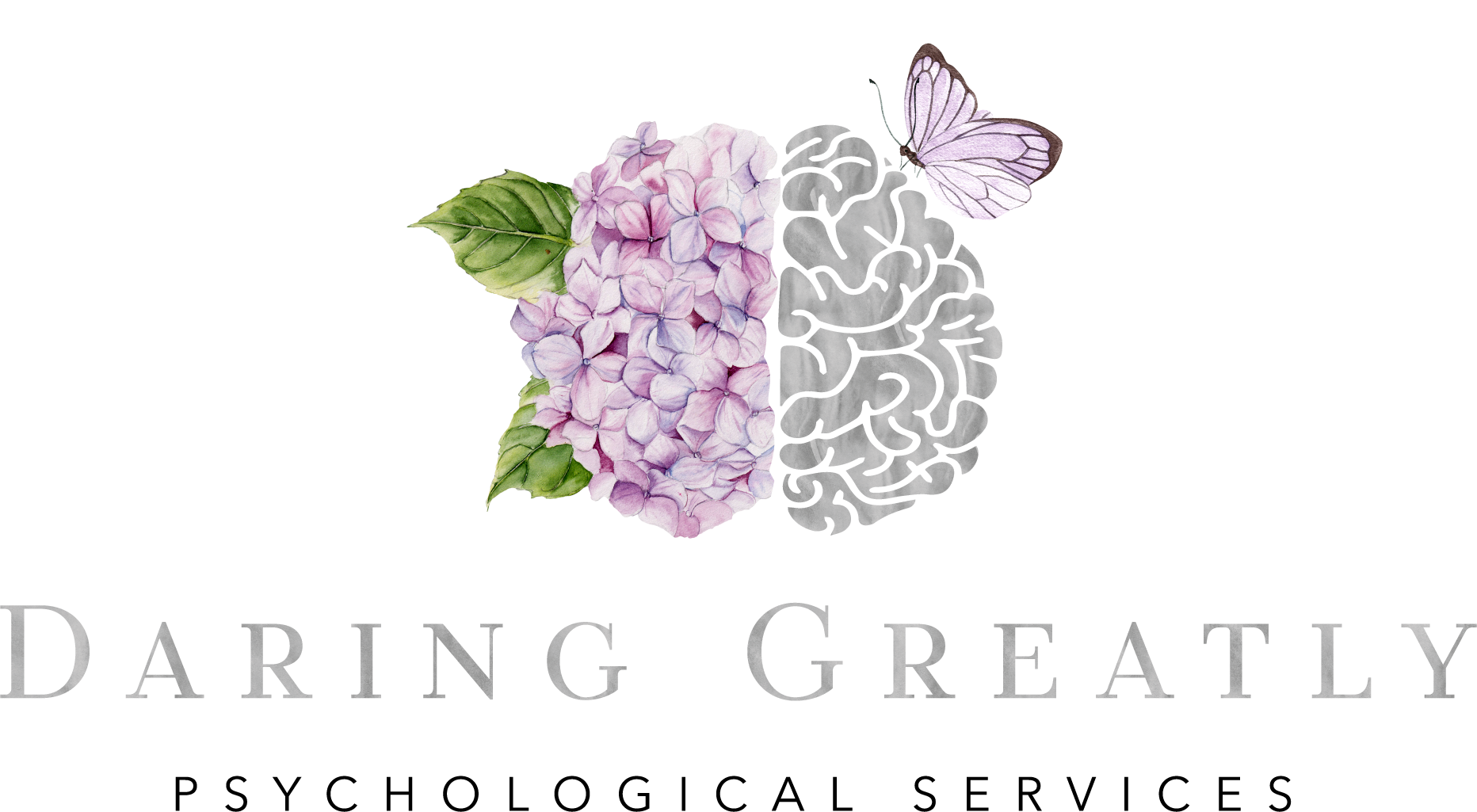About Us…
“ YOU CAN’T GO BACK AND CHANGE THE BEGINNING, BUT YOU CAN START WHERE YOU ARE AND CHANGE THE ENDING..”
- C.S. LEWIS
Hello we are Daring Greatly Psychological Services, a group of Registered Psychologists and Provisional Psychologists, practicing in the Stony Plain area. We provide psychological services to individuals, children, couples, and families, as well as businesses and communities. We utilize trauma informed interventions, play based interventions and other modalities, allowing for our Psychologists to engage our clients establishing trust, and safety in the therapeutic process. This will assist in creating practical and long term effective change that benefits them both individually and within their family system. Our team of psychologists are highly skilled with a diverse knowledge base and extensive trainings, which allows Daring Greatly Psychological Services to effectively work with a variety of clientele. Some of the main areas we address in psychotherapy are: trauma, depression, anxiety, relationship issues, child behaviour concerns, life transitions, and family issues. We are also a recognized provider for First Nations Inuit Health Branch, child and youth Psychoeducational assessments and court ordered Interventions. Please review our therapists’ profiles, services offered, and information about our office to see which Psychologist would be the best fit for you.
Areas of Practice & Special Interests
Ages served
Toddlers / Preschoolers (0 to 6)
Children (6 to 10)
Preteens / Tweens (11 to 13)
Adolescents / Teenagers (14 to 19)
Adults
Elders (65+)
Person-centered therapy
Person-centered therapy uses a non-authoritative approach that allows clients to take more of a lead in discussions so that, in the process, they will discover their own solutions. The therapist acts as a compassionate facilitator, listening without judgment and acknowledging the client’s experience without moving the conversation in another direction. The therapist is there to encourage and support the client and to guide the therapeutic process without interrupting or interfering with the client’s process of self-discovery.
communities served
LGBTQ++ Allied
Body Positivity
Open Relationships Non-Monogamy
Sex Worker Allied
RCMP/Police Service
Veterans
Post Separation/Divorce
Attachment based therapy
Attachment-based therapy is a process-oriented form of psychological psychotherapy. The client-therapist relationship is based on developing or rebuilding trust and centers on expressing emotions. An attachment-based approach to therapy looks at the connection between an infant’s early attachment experiences with primary caregivers, usually with parents, and the infant’s ability to develop normally and ultimately form healthy emotional and physical relationships as an adult. Attachment-based therapy aims to build or rebuild a trusting, supportive relationship that will help prevent or treat anxiety or depression.
specialties & special interests
Child or Adolescent
Relationship Issues
Trauma and PTSD
Indigenous Trauma
Alternative Lifestyles
Fertility
Parenting
trauma informed psychotherapy
The notion of trauma-informed care is an umbrella term, which describes the overarching principles regarding trauma recovery. The SAMHSA (Substance Abuse and Mental Health Services Administration) defines trauma-informed approach to helping survivors of trauma as demonstrating the following key components of client-centered, strengths-focused, and evidence-based care: 1) safety, 2) trustworthiness and transparency, 3) peer support (creating safety in community), 4) collaboration and mutuality, 5) empowerment, voice and choice, and 6) embracing understanding of cultural, historical and gender domains (SAMHSA, 2015).
“Knowing oneself comes from attending with compassionate curiosity to what is happening within.”

